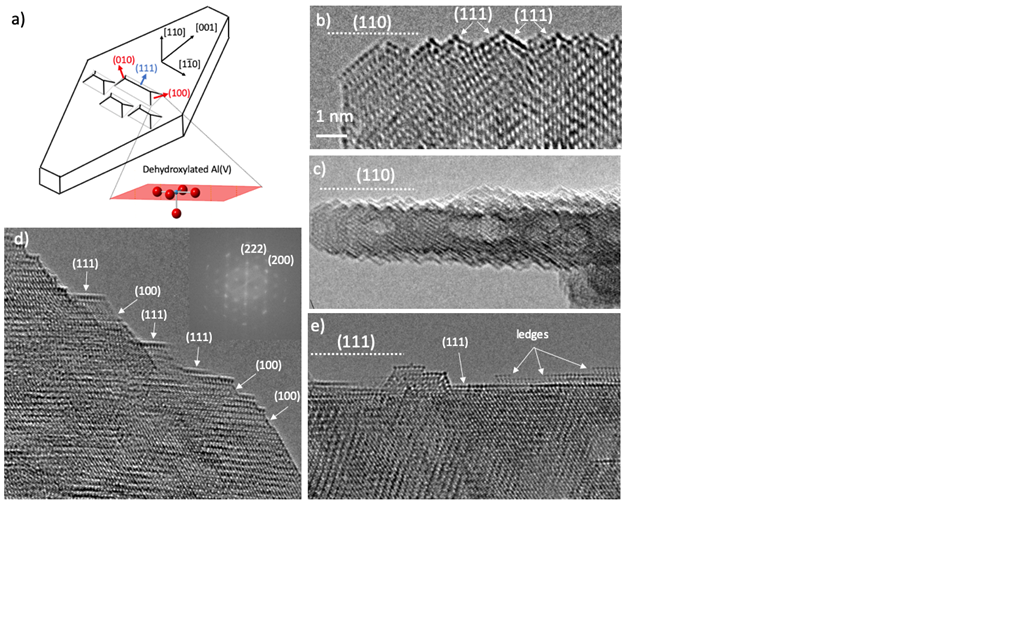(705e) Precise Identification and Characterization of Catalytically Active Sites on the Surface of ?-Alumina
AIChE Annual Meeting
2020
2020 Virtual AIChE Annual Meeting
Catalysis and Reaction Engineering Division
Catalyst Synthesis and Design I: Oxides
Tuesday, November 17, 2020 - 9:00am to 9:15am
γ-alumina is one of the oldest and most important commercial catalytic materials with high surface area and stability. These attributes enabled its use as the first commercial large-scale heterogeneous catalyst for ethanol dehydration. Despite progress in materials characterization and over a hundred years of active research, the nature of the specific sites on the surface of γ-alumina which are responsible for its unique catalytic properties has remained obscure and controversial. Herein [1], we identify for the first time using combined infrared spectroscopy, electron microscopy and solid-state nuclear magnetic resonance measurements that the octahedral amphoteric (O)5Al(VI)-OH sites on the massively restructured (110) facets [in fact, (110) facets completely restructure into (111) and (100) segments] on typical rhombus-platelet γ-alumina as well as (100) segments of irrational surfaces (invariably always present in all γ-alumina samples) are largely responsible for its unique catalytic activity. Such (O)5Al(VI)-OH sites are also present on (100) facets γ-alumina of different more elongated/rod-like geometry. They anchor organometallic fragments and isolated metal atoms. The exact mechanism by which these sites lose -OH group upon thermal dehydroxylation is clarified, resulting in coordinatively unsaturated penta-coordinate Al+3O5 sites that can activate nitrogen. These coordinatively unsaturated Al penta-coordinate sites demonstrate new chemistry, producing the first well-defined thermally stable Al-carbonyl complexes. Our findings reunite and successfully clarify the contradictory findings in the literature over the last century, illuminating the true nature and the relationship between the catalytically active and coordinatively unsaturated Al sites on the surface of γ-alumina.
[1] K. Khivantsev, N. R. Jaegers, J.-H. Kwak, J. Szanyi, L. Kovarik, Precise identification and characterization of catalytically active sites on the surface of γ-alumina,Chemrxiv 2020 DOI: 10.26434/chemrxiv.11829576
